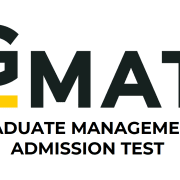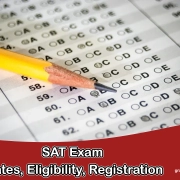Requirements of Scholarships in 2024-2025
Estimated reading time: 20 minutes
Receiving a scholarship can help you pay for college without worrying about finances. Scholarships are awarded to students based on their academic achievements or financial needs. However, to be eligible for a scholarship, you must fulfill certain requirements. Therefore, before applying, make sure to check all the scholarship requirements to ensure that you meet them. Remember that the more qualified you are, the better your chances of winning a scholarship.

Scholarships with No Requirements
Scholarships with no requirements, also known as no-essay scholarships, are scholarships that don’t require applicants to write an essay or meet any specific criteria other than being a student. Here are some examples of scholarships with no requirements:
- $2,000 “No Essay” College Scholarship: This scholarship is open to all high school and college students. To apply, students simply need to fill out an online application and agree to the scholarship’s terms and conditions.
- Cappex Easy College Money Scholarship: This scholarship is open to high school and college students. To apply, students simply need to create a Cappex profile and apply for the scholarship through their account.
- Niche “No Essay” Scholarship: This scholarship is open to all high school and college students. To apply, students simply need to create a free Niche account and apply for the scholarship through their account.
- Bold.org “No-Essay” Community Scholarship: This scholarship is open to all high school and college students. To apply, students simply need to create a Bold.org profile and apply for the scholarship through their account.
- The Gates Scholarship: This scholarship is awarded to outstanding minority students who are high school seniors. It covers the full cost of attendance that is not already covered by other financial aid and can be used at any accredited college or university in the United States. To be eligible, students must have a minimum cumulative GPA of 3.3 and demonstrate financial need.
- Coca-Cola Scholars Program: This scholarship is open to high school seniors who demonstrate academic excellence, leadership, and service to their community. The scholarship is worth $20,000 and is renewable for up to four years. To be eligible, students must have a minimum cumulative GPA of 3.0.
- Davidson Fellows Scholarship: This scholarship is awarded to students who have completed a significant piece of work in the fields of science, technology, engineering, mathematics, literature, music, or philosophy. The scholarship is worth $50,000, $25,000, or $10,000, depending on the level of achievement. To be eligible, students must be under the age of 18 and be U.S. citizens or permanent residents.
- Horatio Alger Scholarship: This scholarship is awarded to students who have faced and overcome significant adversity in their lives. The scholarship is worth up to $25,000 and can be used at any accredited college or university in the United States. To be eligible, students must demonstrate financial need and have a minimum cumulative GPA of 2.0.
- Dell Scholars Program: This scholarship is awarded to students who have overcome significant obstacles to pursue their education. The scholarship is worth $20,000 and includes a laptop and textbook credits. To be eligible, students must have a minimum cumulative GPA of 2.4, demonstrate financial need, and be U.S. citizens or permanent residents.
Scholarships with Academic Requirements
Academic requirements are often attached to scholarships. The main criteria for receiving the scholarship are, therefore, GPA and/or test results. While most academic scholarships demand that applicants have high GPAs, some offer awards to those with less-than-stellar grades.
Students frequently need to provide documentation of their academic success when applying for academic scholarships. This may occasionally call for a transcript or test results. In some cases, students may be required to submit an essay with their scholarship application. The applicant pool for scholarships with academic requirements is smaller, partly due to the stricter requirements but also because the application process requires more work.
Scholarships with Financial Requirements
Many students apply for scholarships that have financial requirements because scholarships are unrequited free money for education. The majority of these scholarships demand that candidates be able to show need. These monetary awards can aid in filling the gap between what students can afford to pay and the amount of financial aid that is provided.
Students are frequently asked about their income and their parent’s income on the application for scholarships with financial requirements. There may also be additional requirements, such as involvement in school or extracurricular activities.
Scholarships with Extracurricular Requirements
Scholarships with extracurricular requirements are also available to students. These are grants given to students for membership in particular organizations. The extracurricular activities include clubs, academic organizations, and athletic teams.
Scholarships with extracurricular requirements need evidence that applicants are active members of the relevant group. A recommendation letter or essay is frequently needed. Students can request recommendation letters from coaches, mentors, or sponsors.
Students who discover scholarships that have extracurricular requirements and are eligible for them should apply. Given the specific nature of the athletic team, club, or organization, the pool of other applicants is typically smaller. Additionally, these scholarships typically require a little more time to apply.
Scholarships with Other Requirements
Finally, some scholarships fall into a more diverse category and have additional requirements. These scholarships are given out according to factors like last name, citizenship status, or place of employment. For these kinds of scholarships, there are many different requirements.
Some scholarship applications with other requirements only require students to fill out a form, while others also ask them to submit an essay or a letter of recommendation. Unless it’s a very specialized scholarship, those with simple application procedures will probably receive a larger number of applications. Like the scholarships mentioned above, those requiring more effort will have fewer applicants, increasing the likelihood of winning a scholarship.
Requirements for a Scholarship After You Win
There are requirements for scholarships both before and after you win, in addition to the requirements for scholarships before you apply. Students must maintain a specific standing to continue to be eligible for a scholarship. Following your scholarship award, you may need to maintain a minimum GPA, continue demonstrating financial need, or continue participating in an extracurricular activity.
Scholarships may be granted for one year or for each year that a student attends college. Students should carefully read the details regarding the amount and duration of the award before applying. After being awarded a scholarship, they should review the criteria to ensure they can continue to meet the requirements and keep the scholarship.

Why should I establish Scholarship Criteria?
Simply put, you need to add a few filters for potential students, or you risk being overwhelmed with unqualified or numerous applications. Additionally, establishing precise criteria will enable your team to review applications with greater assurance and speed and choose the best candidate.
1-GPA
A high and stable GPA is one regularly considered criterion. Numerous scholarships demand a minimum GPA of 3.0 or even 3.5. You could mandate that the student maintain a specific GPA each year to avoid losing any future funds if the award is a renewable sum paid out annually rather than a one-time award. When school is difficult, this requirement might serve as a constant source of motivation for the student.
2-Financial need
Scholarship requirements frequently include financial needs. You might want to assist gifted students who would not otherwise be able to afford college due to its rising costs. A common guideline that is simple to confirm with tax records pay stubs, and other records are the requirement that the applicants’ families’ incomes fall below a certain amount.
3- Geographic boundaries
Geographical boundaries are another common selection for the criteria. After all, allowing the student to use your funds to attend a college far away, where they will establish networks and possibly find a local job after taking their degree, does no good if you’re looking to hire the student once they graduate. By establishing this kind of requirement, you can also cater to a particular community, most likely one in a particular area that your organization serves.
4- Current employees
You might only accept applications from members of the immediate family of current employees. Employees who have children who are close to college age may find this benefit to be very beneficial. However, be careful not to set too many restrictions; otherwise, you might not find any applicants at all. To maintain the appearance of equity, you might want only to accept applications from students unrelated to your current employees.
5- Demographics
When selecting applicants, restrictions based on demographics are frequently used. This helps level the playing field and provide marginalized people with equal opportunity. Based on the demographics of your staff, organization, or neighborhood.
6-Field of interest
Your business might want to entice people to choose a particular study area. This could help fill a future human resources shortage you might be experiencing by assisting in recruitment. Or you might just be interested in advancing specific interests for the benefit of the sector.
You can select only a few possible rules when creating a scholarship. The scholarship requirements you select are completely up to you, from academic accomplishments to areas of interest.
What are the application requirements to apply for scholarships?
Let’s say you intend to apply for a Master’s degree abroad. What documents do you need to upload? As a result, the following are the primary documents that international universities require of you:
1-Degree certificate of previous studies
You will be required to submit certified, English-translated copies of your prior diplomas from graduation along with your Master’s application to a university abroad. While the majority of Master’s applications only call for a Bachelor’s degree, some programs also require proof of high school graduation. To be eligible for a graduate program, universities require these documents as proof that you attended and completed prior educational cycles. However, the information on these diplomas typically includes your grade point average (GPA), final grades, or bachelor’s thesis.
The university admissions committee will consider your GPA and final exam results, as well as the standing of the school you graduated from. They will know you have taken your studies seriously and are capable of academic excellence if you have good final exam/thesis grades. But don’t worry, you won’t be rejected if your grades aren’t stellar. There are numerous other ways to influence the commission, including through volunteer work, a strong sense of motivation, and positive recommendations.
2-Transcripts of your Bachelor’s studies
Academic transcripts provide the university with comprehensive information about the courses and modules you took at the undergraduate level, along with your grades. Universities require official copies of these transcripts, not screenshots or printed pages, in order to be accepted.
Academic transcripts are crucial because they allow universities to determine whether you have the background and skills required for the Master’s program you are applying for.
At the same time, they can see which subjects you did better in and which ones you need to work on more. Because of this, it’s crucial that you achieve higher grades in the undergraduate courses that matter the most for the Master’s program you selected.
Take this as a case study. Let’s say you have a Bachelor’s degree in political science and want to pursue an MA in international relations. If you took courses in international relations like international law or European studies as opposed to domestic politics, the application commission would be more interesting.
3-Proof of language proficiency
There is a good chance that you will study in English or another widely used foreign language if you apply to a degree program abroad (German, French, etc.). For this reason, universities need proof that your ability to understand and use the language at an academic level will not be a barrier to your studies.
When teaching English Most master’s universities demand official language credentials like the TOEFL, IELTS, PTE Academic, C1 Advanced, etc. When they demand a certain score, it means they genuinely anticipate that you will achieve that score. The greater your score, the more confident they will be in your command of English.
Additionally, if your Bachelor’s degree was taught in English, some universities may not require a language certificate. They will take note of any English-language courses listed on your transcript of records in this case, such as “Academic English.”
4-Statement of Purpose (SOP)
The requirement that applicants submit a statement of purpose or motivation letter is unclear to many students. Despite their similarities, a motivation letter and a statement of purpose are two distinct documents. Both documents should, however, concentrate on your background and the reasons you’re applying for this particular degree. Typically, they ought to be concise (don’t give the university your life story), clearly structured, and well-written. Try to keep it to a page or two.In a motivation letter or statement of purpose, most universities expect you to include the following:
-Why you want to enroll in their university’s particular program and how you found out about it.
-What aspects of the program’s content appeal to do you and why you should choose it as your best study option?
-What particular reason did you choose that particular program? (reputation, professors, employment options, etc.)
how well your prior coursework matched the Master’s degree you wanted to get. If they don’t, you -should explain why you want to switch subjects.
-What field of work do you hope to enter after graduation and how this degree fits into that.
Even though a statement of purpose and a motivation letter are similar, they differ just slightly.
Universities anticipate that you will concentrate more on how their program relates to your background and career goals in your motivation letter. The course or specialization you want to concentrate on for your Master’s degree may also be something they ask you to specify.
Universities expect you to include information in your statement of purpose about your identity, the factors that have shaped and inspired your academic and professional career to date, your interests, and your career goals. In other words, it is a lot more personal and your chance to really sell yourself in your application.

5-Recommendation Letter
Let others speak for you by providing references. They are typically viewed as additional proof of your capacity to successfully complete the Master’s programme you are applying to.
If only letters from professors are needed, they will highlight your academic abilities and accomplishments. Universities anticipate that, if you are permitted or required to submit a reference letter from your employer, it will mention your Master’s-related skills.
For instance, a reference letter from your manager at a tech company is more valuable than one from a company where you worked in customer service, for example, if you are applying for a Computer Science degree. To ensure that the reference letters arrive at the university in time, make sure to ask for them far in advance.
6-Project description or portfolio
Only some specialized programs, such as a Master of Research or Master of Science degree, require a project description or portfolio.
Applications for master’s degrees in the arts, design, and architecture must include portfolios. Universities anticipate that your experience and, yes, your talent in your field of study will be reflected in this portfolio. They will also consider your clients and the kinds of projects you completed.When applying to a programme that will culminate in a research thesis, you must submit a project description. The following information should be included in this project description:
-What are you going to research and why
-What is the current state of research on that topic
-How you are going to conduct your research
-What findings you expect and how your research adds to the existent body of knowledge
7-Academic CV
The CV serves as your business card. Although you should definitely include them, universities are not interested in a thorough description of all your jobs and extracurricular activities. They are looking to see if your experience aligns with or demonstrates your interest in the programme you want to enrol in.
Due to this, you should concentrate on listing published academic papers, work (whether paid or unpaid) in academic groups, pertinent think-thanks, etc. on your resume. For instance, if you are applying for a psychology degree, the commission will be impressed if you have completed internships at hospitals or published any studies in peer-reviewed journals.

Frequently Asked Questions: Requirements for Scholarships
You can select only a few possible rules when creating a scholarship. The scholarship requirements you select are completely up to you, from academic accomplishments to areas of interest.
The kinds of students scholarship administrators are looking for determining the award’s requirements. To fully comprehend the award, you should carefully read the expectations. There will be rigid requirements. You’re out of luck if an award is for someone with Aboriginal ancestry and you do not qualify. Other requirements are more lenient. You might initially think you do not have enough volunteer hours to be eligible if an award is looking for someone who demonstrates leadership in their community or has experience. Instead, you ought to consider any experience you may have, consider the lessons you learned along the way, and then put those lessons into practice. Let the administrators decide when enough is enough.
By school, the conditions change. You will be put on the list for any automatic consideration awards when you apply for admission. Contact the school’s financial aid or student awards division if you require current information.
Yes, your acceptance letter will state which automatic scholarships you are eligible for. You might receive another notification if your eligibility changes or more scholarships become available.
Your grades, whether in grade 12 or not, are only important for scholarships that specifically state this. The requirements are stated clearly in the listings on ScholarshipsCanada, so if your academic average isn’t listed, you shouldn’t be concerned.
Typically, scholarship administrators will consider your overall GPA. Yes, they will count if your GPA includes your summer grades. Some scholarships will even request a copy of your academic record, allowing them to evaluate your performance across all of your courses. If you are still unsure what will count, ask the admin.
Typically, a 4 or 5-point scale is used to calculate the grade point average (GPA). Your grades should fall between 75 and 85 percent since a 3.0 is equal to a “B” and a 4.0 is an “A.” If you think you have a chance, you should just apply because different schools and organizations have different numbering systems. There are online GPA calculators if you want to go above and beyond. Of course, you should speak with the scholarship administrator directly if you have any concerns.
The definition of “financial need” will vary depending on the scholarship administrator because it is a broad term. A budget or financial account of your finances (including household income, expenses, etc.) may be requested so that administrative staff can determine which applicants have the greatest need. To gain an advantage, speak with the scholarship administrator directly to find out what the term “financial need” means to them.
No, not always. You can look for scholarships on ScholarshipsCanada in a variety of ways, including by field of study, ethnicity, extracurricular activities, affiliations, special needs, and more. Scholarships offered by schools themselves are typically the only ones that care where you attend. Many prizes from businesses or organizations might not care which school you attend.
Some scholarships are available for students in grades 10 and 11, but the majority of the awards are for those pursuing post-secondary education. Make sure you are qualified for the awards you apply for by giving it some thought. But you should be commended for starting your search early. Your chances of receiving outstanding scholarships after graduation increase with the amount of preparation and research you can do.
To find out what you are eligible for, you should, without a doubt, look at your matching awards. There are many awards available, but many of them are for students starting their first year of college or university. Some of them aren’t even academic!
Unless specifically stated in the award, generally no. Before pursuing awards, you must typically have applied and been accepted. If you are interested in an award that is given automatically, you don’t need to apply at all because the award will be given to you once you accept your admissions offer.
Yes, you can apply, but only registered students will be eligible to win. Many scholarships are awarded at the time of enrollment and can be applied to your tuition. You would be better off directing your attention somewhere else if you weren’t going to attend a specific school.
Awards may, on occasion, be contingent upon your high school or the area in which you were raised. This will be made very clear in the listing for the scholarship. However, as long as you meet the requirements for the award, schools generally don’t care which institution you attended.
Absolutely. you can look for awards based on your field of study or intended career. If you are logged in, awards that match your profile’s interests will be automatically matched with you.
Yes. Some scholarships are awarded based on your school, ethnicity, club membership, etc. Some are even completely transparent. Apply for every award you can find, please!
In no way! There are many scholarships available, but only a small number require extensive community service. You’re good unless the award listing states that a certain number of hours are required.
Yes. Some prizes call for managerial prowess or practical work experience. Even your employer might provide scholarships on their own. There is no harm in asking around.
Absolutely. Numerous awards are given to people in financial need, and many more look for candidates with disabilities, illnesses, or other challenges. I looked through Scholarships Canada but could not find any suitable for me. I don’t need money and don’t want to have a lot of student debt! Make sure your profile is as accurate as possible by looking at it. The search fields work similarly. You will surely find a few scholarships that fit because many are available for students attending any school and in any field of study. Also, do not disregard smaller scholarships. You might receive several awards and use them all to support your education.
includes awards for both focused, organized activities and many others centered around more ad hoc interests and hobbies. You don’t need to be an official member of most organizations to apply for scholarships.
Scholarships are available to anyone; community ambassador status is not required. ScholarshipsCanada has awards for every type of applicant. Do not stress about being noticed. Apply for awards you are eligible for. Apply if you are eligible and meet the requirements! If the award includes an essay or personal statement, that is where you should make your argument. Always be truthful and upfront about who you are!
Spend some time weighing your options, but keep in mind that there are millions of dollars in awards that don’t even inquire about citizenship. Any award you qualify for should be applied for. If a listing specifies that it is only for Canadian citizens and you are not a Canadian citizen, move on. You can always return to the award once your citizenship documents are received!
only 15% of the awards have a community service requirement. That means that 85% don’t! Regarding essays, since many scholarship administrators have similar requirements, you should be able to create a strong draught that you can reuse for several applications after some minor adjustments. Beyond that, no one will object if you reuse a personal statement or essay from one application to the next. Remember to consistently target the specific scholarship you are applying for and pay attention to the questions the administrator asks.
look through corporate websites as companies and organizations frequently offer one or more scholarships. Speaking with a guidance counselor is a great way to find out about your options.








Great beat ! I wish to apprentice while you amend your website, how could i subscribe for a blog website?
The account helped me a acceptable deal.
thank you
Have you ever thought about including a little bit more than just your articles?
I mean, what you say is fundamental and everything. But think of if you added
some great photos or videos to give your posts more,
“pop”! Your content is excellent but with pics and videos, this site could definitely be
one of the most beneficial in its field. Wonderful blog!
thank you
Definitely believe that which you stated. Your favorite reason appeared to be
on the web the simplest thing to be aware of.
I say to you, I definitely get irked while people think
about worries that they plainly don’t know about. You managed to hit the nail upon the top as well as
defined out the whole thing without having side-effects ,
people could take a signal. Will likely be back to get more.
Thanks
Thank you for any other fantastic article. Where else
may anybody get that type of info in such an ideal approach of
writing? I’ve a presentation subsequent week, and I’m
at the look for such information.